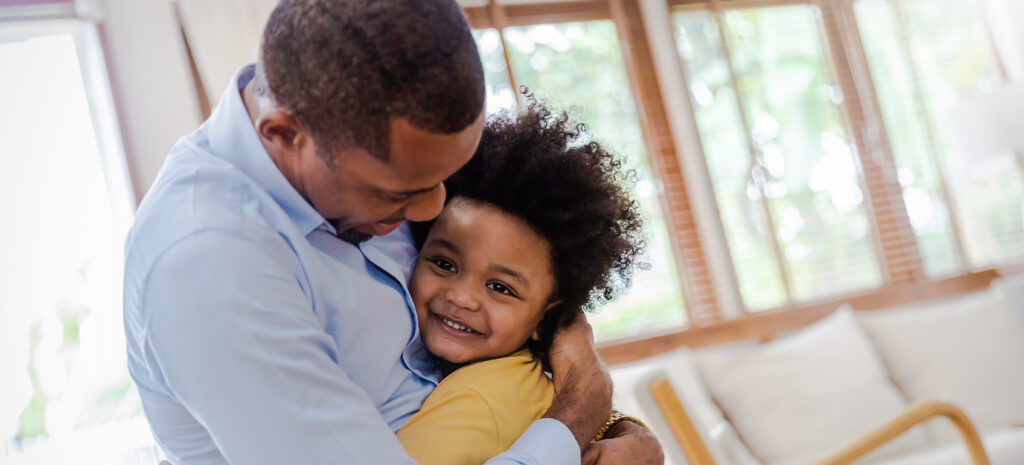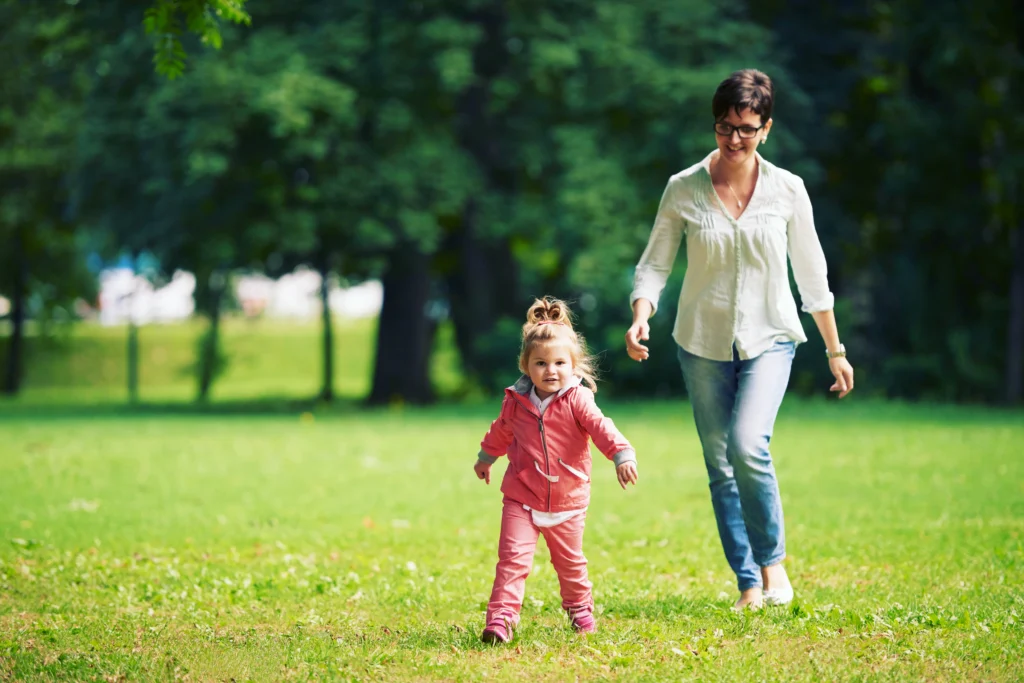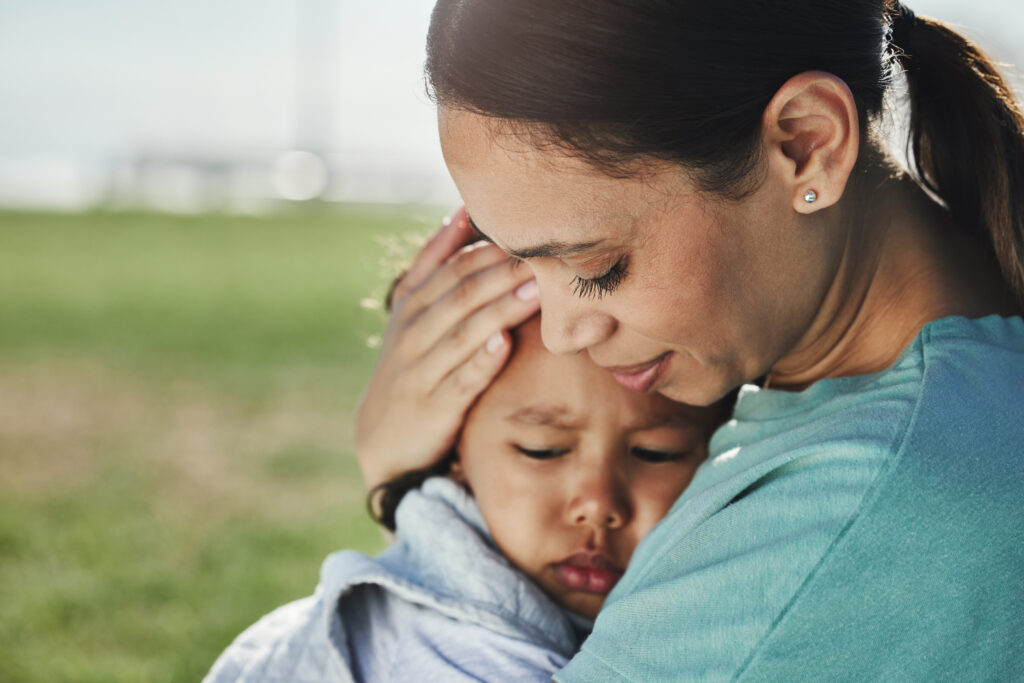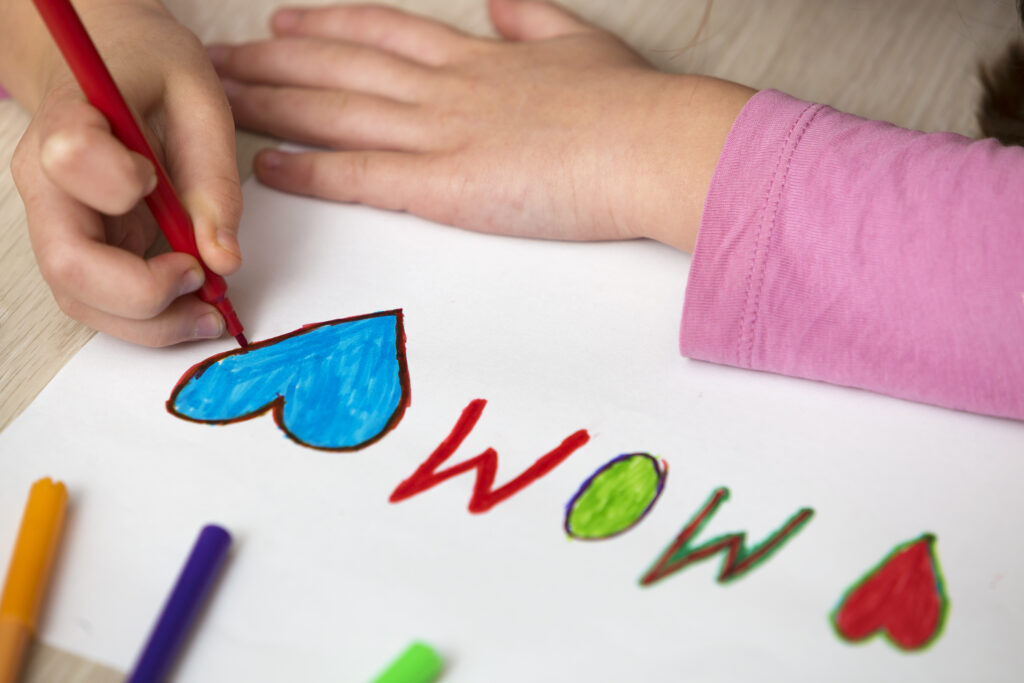Conscious Co-Parenting After Divorce or Separation

Introduction Divorce or separation is normally one of the hardest transitions in life that causes emotional turmoil and shifts among all members of the family. It is understandable that parents would be concerned about the effect on the children. However, with a deliberate co-parenting, you can develop stability, empathy and resilience- and the well-being of your child has to be the priority. The road can be varying in every family, however in Vedangi Brahmbhatt, we provide parents throughout the USA with time tested, understanding approaches in the peaceful post-divorce parenting. 1. Prioritize Nonviolent Communication and Active Listening The relationship that a co-parenting relationship can be built on is that of nonviolent communication. Despite the separation, it is still possible to communicate with your co-parent in a sensible way before placing the respect and needs of your child first. Active listening parenting leads to improved tension-free communication between both adults and children as well as understanding of each other. Family meetings (meetings even when parents live in different houses) are among the supports, which permit the open communication possibilities and enable children to share their emotions regarding transitions. The exchange of information regarding school, everyday life and even the activities of toddlers makes sure that the children feel secure and assisted regardless of their location. 2. Support Emotional Regulation for Kids and Adults In case of divorce, children usually have problems with depressive and happy moods. As the conscious parent it is good to make kids learn the necessary emotional regulation kids require not only with words, but also with serenity in energy and stable routine. Security and confidence are developed through mindful transitions between homes, justification of how children feel and predictability in the discipline such as positive discipline (instead of punishment) with toddlers. Self-care and emotional regulation are also important when it comes to adults. Use the work of professional resources and best parenting books as a tool and validation. In some cases, consulting a child development expert would be helpful in offering specific assistance to special family situations. 3. Foster Holistic Child Development with Consistency and Collaboration The healthy post-divorce families are dedicated to the process of full child development, not merely emotional, but cognitive, social, and physical. Regular anticipations on either side (such as how to use screen time, eat, and sleep) reduces the ambiguity in children. In states like Conscious Co-Parenting NJ, the success of co-parents has been achieved through the reduction of differences in routines, rules, and even holiday routines. Exchanging materials about the methods of co-parenting that can be adopted at home and frequent visits between parents can facilitate the difficulties and establish mutual trust. Conclusion: Divorce is a chapter, and not the story. Through caring, dialogue, and mindfulness, one can establish a base of happiness, recovery, and development by the co-parenting process. When children grow up with love, predictability and the consistent availability of parents who are concerned with them, they thrive. Vedangi Brahmbhatt has specialized consultations which enable families to flourish post transition. Also, keep in mind to follow us on Instagram, and YouTube in order to get continuing tips and resilience stories. Hint: Tally a co-parenting journal- exchange notable ideas, times and experiences between homes to make the life of your child as smooth as possible. To see our most recent press releases, please visit the following address:To learn more and start your healing co-parenting journey, visit vedangibrahmbhatt.com and explore our resources, courses, and consultation services.
Self-Care for Conscious Parents: Why You Can’t Pour from an Empty Cup

Parenting is an unwavering journey that’s full of joy, trials and deep connections. Yet too often, parents – especially those striving to be the conscious parent – neglect their own well-being in the process, leading to burnout and exhaustion. The truth is, you’re not able to pour from an empty cup. Prioritising self-care is not selfish; it is an essential foundation for mindful parenting, Emotional Regulation Kids, and family harmony. Vedangi Brahmbhatt, a trusted Child Development Specialist, supports parents across the USA in embracing self-care practices that nourish the whole family system. This blog will share why self-care is important, ways to integrate it into your life in meaningful ways, and the positive impact it has on your kids. Self-Care Builds Your Ability to Parent Mindfully Mindful parenting requires patience, presence, and emotional regulation – all things that are hard to accomplish when running on empty. Taking time to recharge physically, emotionally, and mentally reestablishes your capacity to engage in Active Listening Parenting and respond thoughtfully, not react impulsively. Simple rituals including meditation, gentle exercise, or quietly reading (perhaps from one of the Best Parenting Books) increase calmness. When you care for yourself, you strengthen the foundation to implement Positive discipline strategies for toddlers effectively and compassionately. Modelling Healthy Habits Supports Holistic Child Development Children learn by example. When they witness parents pushing their own self interests, they learn valuable lessons about self-respect, balance, and emotional strength. This supports Holistic Child Development – nurturing emotional, social, cognitive, and physical growth. Incorporating Toddler Activities that encourage independence also allows parents designated rest and self-care moments. Through Family Meeting and open communication, families can create shared agreements that support everyone’s needs, cultivating an environment for healing and growth. Self-Care Allows Us to Consciously Co-Parent and Communicate When parents are feeling balanced, communication is improved, to benefit the whole family. Embracing conscious co-parenting with partners gets easier to do as stress and overwhelm dissipate. Parents can practice more effective Nonviolent Communication: creating security and trust. Regular check-ins, such as Family Meeting, create space to express feelings and adjust routines, supporting both parental well-being and children’s ability to regulate emotions. Managing your energy ensures the provision of a more loving and supportive home for your child’s flourishing. Conclusion: Fill Your Cup to Feed Your Family Self-care is an act of empowerment that’s essential in the mindful and intentional parenting journey. Taking care of yourself improves your relationship with your child and helps you have the clarity and compassion to navigate the ups and downs of parenting. For customised advice on How to implement conscious parenting techniques at home and conscious co-parenting, consult with Vedangi Brahmbhatt. Don’t forget to follow us on Instagram, and YouTube for more insight and practical tips about living mindfully as a family. Here’s a tip: schedule some short daily moments for yourself, even if just five minutes, to breathe deeply and reset your mindset. There is a profound difference in making a difference. For the latest in news and updates, please click here to access our recent press and news. At Vedangi Brahmbhatt, we believe taking care of yourself is what fuels your children’s growth. Visit vedangibrahmbhatt.com to view courses, Best Parenting Books, and consultations that nurture mindful thriving families, while embracing the Benefits of mindful parenting for child development.
The Role of Inner Child Healing for Conscious Parenting

Parenting is one of the greatest catalysts for personal growth, a journey in which healing your inner child is as important as nurturing your own child. The conscious parent understands that unresolved wounds from their own childhood can influence how they respond to their children. For parents all throughout the USA who are looking for connection and mindful family living, embracing inner child healing brings profound transformation for both generations. Vedangi Brahmbhatt, an experienced Child Development Specialist and advocate for mindful parenting, emphasises integrating inner healing with How to implement conscious parenting techniques at home. This holistic approach aids Emotional Regulation Kids, enhances bonds, and fosters healthier family environments. Understanding the Inner Child’s Role in Parenting Patterns Our inner child carries memories, emotions, and beliefs established during early experiences. Without healing these parts, parents can unconsciously repeat patterns of behaviour sometimes harshly setting limits, struggling with regulation, or avoiding conflict out of fear. Understanding the influence that your inner child has on your parenting helps break these cycles. Through practices often accompanying the conscious parent teachings, such as Active Listening Parenting and Nonviolent Communication, healing creates space for empathy and patience, enriching both your growth and your child’s development. Healing the Inner Child Aids in Emotional Regulation Kids When parents attend to their own emotional wounds, they are better equipped to help with Emotional Regulation. Kids need to thrive. Healing cultivates calm and self-awareness, which models resilience and emotional intelligence for children. This aligns with Holistic Child Development principles that nurture the whole child emotionally, socially, and cognitively. As parents heal, they create safer environments for children to explore emotions securely, strengthening cooperation and attachment key Benefits of mindful parenting for child development. Strengthening Family through conscious co-parenting and Family Meeting Inner child healing also improves relationships within the family system. Couples who practise conscious co-parenting with healing awareness foster compassionate and consistent communication, reducing conflicts that affect children. Using Family Meeting to openly discuss feelings and expectations encourages openness and participation. These tools, inspired by mindful parenting, build environments where families can co-create respect, understanding, and collective healing. Conclusion: Embracing Inner Child Healing to Change Your Parenting Journey Understanding and nurturing your inner child is critical to becoming the conscious parent you aspire to be. It helps dismantle toxic patterns, manage emotions healthily, and develop heart-centred relationships within your family. For customised advice, you can consult with Vedangi Brahmbhatt or explore resources such as the Best Parenting Books, courses, and consultations to support your journey. Don’t forget to follow us on Instagram, and YouTube for more inspiration on Toddler Activities, mindful parenting, and child development.
How to Set Boundaries Without Shame or Guilt – A Conscious Parenting Guide

Setting boundaries is an important part of having a healthy relationship and healthy family dynamics, but for many parents this comes with a large amount of shame or guilt when setting and enforcing limits. In a world filled with advice and social pressure on raising a child, it’s easy to think that if you are setting rules or saying “no,” you are being a harsh or unloving parent. However, the conscious parent knows that clear, compassionate boundaries contribute to security, respect, and trust in children, and help children to develop resilience and emotional regulation kids need. Vedangi Brahmbhatt is an experienced Child Development Specialist helping to teach families across the USA how to embrace boundaries without fear or guilt by using mindful parenting strategies. In this blog, learn how to implement conscious parenting techniques at home assertively while being loving and establishing the basis for healthy growth and connection. Recognise Boundaries as Acts of Loving and Caring Setting limits easily lends itself to being viewed as punishment or rejection, when in fact it’s a critical form of nurturing. Boundaries communicate safety and predictability, helping children feel secure. When parents frame limits as acts of protection and love, the guilt that comes with saying “no” lessens. Integrating boundaries into positive discipline strategies for toddlers helps children understand the “why” behind rules. This approach promotes cooperation over rebellion and supports holistic child development. Practise Nonviolent Communication to Express Boundaries Clearly Clear, empathetic communication is key to setting boundaries without shame. Using Nonviolent Communication techniques, parents can express needs while validating their children’s feelings. This includes calmly stating limits, giving reasons briefly, and offering alternatives. For example, saying, “I want you to be safe, so you need to be in the backyard. Let’s choose some fun toys to play with here,” models respect and offers choice within limits. This helps kids feel heard and reduces power struggles – a true benefit of mindful parenting for child development. Use Family Meetings and Active Listening Parenting to Build Consensus Including children in discussions of limits through regular Family Meetings promotes ownership and understanding. When kids help set household rules, they’re more likely to respect them. Practicing Active Listening Parenting during these discussions enables parents to fully hear children’s perspectives and co-create boundaries aligned with family values. This collaborative process strengthens bonds and minimises guilt parents may feel when imposing limits alone. Conclusion: Boost Your Parenting Power with Compassionate Boundaries Setting boundaries without shame or guilt transforms parenting into a journey of empowerment and love. Clear limits teach safety, responsibility, and emotional regulation kids need for lifelong success. For personalised guidance, consider a consultation with Vedangi Brahmbhatt – an expert in conscious co-parenting and mindful parenting. Her consultations, resources, and even recommendations for the best parenting books offer tools to help families thrive. Don’t forget to follow us on Instagram, and YouTube for ongoing advice and inspiration on Toddler Activities, mindful parenting, and child development.
The Impact of Childhood Trauma and How Parents Can Heal Together

As a Child Development Specialist, Time and time again, I’ve seen one thing holds true: childhood trauma doesn’t just disappear—it stays with you. It is often quiet. But it can adversely affect how you act, how you love, and how you feel as a grown-up. If it’s not healed, it can surface in the way you parent your child, but here’s the good news: you can heal, and you don’t have to do it alone. Here, I want to look at how childhood trauma can affect a family. We will see how mindful parenting and conscious co-parenting can help us heal. We can work through it together, as a team. 1. Understanding How Trauma Shapes Our Parenting The difficult things in your past aren’t always obvious or easy to spot. It can be when no one understands your feelings. Or being told to hold back your deepest emotions or to act a certain way.” These small things can make a child feel not seen and not safe. When you are a grown-up, this can make you: In my work with families, we look at how your inner child affects the way you parent today. The first step is to understand each action. This helps you be the conscious parent. That is a parent who acts with thought, not just out of habit. 2. Healing as a Team Through Conscious Co-Parenting Regardless of whether you are in the same place or not. When you heal as a team, you make a safe place for your child. Conscious co-parenting is when both parents try to be there. They are aware of feelings and act on them. You do not have to be an expert. But you do need to talk, care, and work with each other. Here is how you can start: This way of doing things is closely associated with Conscious Co-Parenting NJ. New work in Holistic Child Development shows it is good. A 2023 study found that children in homes where feelings are acknowledged have 33% fewer behavioral problems. They also do better in school. 3. Rebuilding Safety Through Mindful Connection When past experiences have pushed you away from people, closeness can help you heal. Mindful parenting is when you show up for your child each day; you’re also showing up for yourself. It looks like this: When you show your child how to be in tune with their feelings, they’ll carry that skill for life. They learn to guide their feelings. This is how we raise kids to be wise with their feelings, and it starts at home. The benefits of mindful parenting for child development are more than just how they act. It makes them think in new ways. It helps them deal with difficult times. And it helps them develop a sense of safety around you. Conclusion: Healing Begins With Awareness It’s not easy to parent when you carry past trauma, but it’s some of the most rewarding work you’ll ever do. Choose to grow, not to feel bad. Then you will be the conscious parent your child needs. You can become the healed adult your younger self needed. Tip: Make a “calm corner” in your home for all of you. It is a place you and your child can go when feelings seem uncontrollable. Include calming items soft blankets, favorite books, or quiet songs, so you both know it’s a safe place for emotions. Don’t forget to follow us on Instagram, and YouTube for more insights and expertise.For the latest news and updates, click here to view our recent press releases.
Helping Your Child Develop Self-Regulation Skills

We’ve all been there—your child is mid-meltdown in the grocery store aisle, or maybe they’re lashing out at a sibling after a long school day. It’s in these challenging moments that the magic of self-regulation can make all the difference. And while emotional control may not come naturally to kids (or adults!), it is a learned skill—and one that begins at home. As a Child Development Specialist, I often remind parents that our job isn’t to create perfect children, but to model and guide them toward emotional intelligence. In this blog, we’ll dive into what self-regulation really means, why it’s essential, and how to help your child build it in everyday life. 1. Start Early with Routine & Predictability Self-regulation is the ability to manage one’s emotions, behavior, and energy levels in response to a situation. It begins with a sense of structure and security. a. Use Toddler Activities to Teach Patience Simple games like “Simon Says” or puzzles teach children to wait, listen, and follow directions. These fun exercises lay the foundation for impulse control. b. Schedule Regular Family Meetings Carve out time each week to talk about feelings, conflicts, and achievements. Giving kids a voice helps them name their emotions and feel validated, while reinforcing routines and mutual respect. c. Consistency Creates Calm Children thrive on predictability. Mealtime routines, bedtime rituals, and morning check-ins are all gentle ways to reinforce calm and prepare them to self-regulate during transitions. 2. Be a Role Model of Regulation Whether we like it or not, our children are always watching. How we handle stress teaches them how to handle theirs. a. Embrace Mindful Parenting Take a deep breath before reacting. Pause when you’re angry. These simple acts show children that emotions are okay, but so is slowing down to respond thoughtfully. b. Practice Nonviolent Communication Instead of “Stop yelling,” try “I hear you’re upset, let’s talk about it calmly.” Language shapes reality. Reframing correction with kindness helps teach your child better coping strategies. c. Encourage Active Listening Parenting When your child is venting, resist the urge to interrupt or problem-solve right away. Just listen. You’d be surprised how powerful your undivided attention can be in de-escalating big emotions. 3. Teach Regulation Through Connection Children learn to regulate when they feel connected, seen, and safe. a. Build Skills with Play Games that involve waiting turns, following rules, or role-play (like doctor or restaurant) encourage empathy and cognitive control—cornerstones of emotional regulation kids need. b. Promote Holistic Child Development Focus on the whole child—emotionally, socially, and cognitively. Sleep, diet, physical activity, and safe relationships all contribute to a child’s ability to regulate themselves. c. Explore Resources Like Best Parenting Books Books like “The Whole-Brain Child” or “No-Drama Discipline” offer evidence-based techniques that align with how to implement conscious parenting techniques at home and support positive discipline strategies for toddlers. Real-Time Insight According to the CDC, children with strong self-regulation are 2x more likely to perform well in school and develop healthy relationships. But only about 40% of U.S. children under 6 demonstrate age-appropriate self-regulation skills. This underscores the need for early, intentional support. Conclusion: It Starts With You Self-regulation doesn’t develop overnight. But with patience, empathy, and the conscious parent mindset, you can help your child thrive emotionally and socially. Your presence and guidance matter more than perfection ever could. Tip: Create a “calm corner” in your home—a soft space with books, sensory toys, or calming visuals. Let it be your child’s safe place to self-regulate. Don’t forget to follow us on Instagram, and YouTube for more insights and expertise. For the latest news and updates, click here to view our recent press releases.
Everybody’s Doing It”: How to Help Your Kids Avoid the Dangers of Drug Use, Underage Drinking & Peer Pressure

“But Mom, everyone’s doing it!” That sentence can send chills down any parent’s spine. Whether it’s underage drinking, vaping, or experimenting with drugs, peer pressure has never been more potent or more pervasive—and it’s starting younger than we might think. In the age of social media, “fitting in” isn’t just about school hallways anymore. It’s 24/7. It’s digital. It’s emotionally loaded. As the conscious parent, your mission isn’t just to say “no” on their behalf—it’s to equip them with the tools, confidence, and self-awareness to say no themselves. And while we can’t completely shield them from peer influence, we can absolutely strengthen their ability to navigate it. Here’s how to use mindful parenting, emotional communication, and real-world strategy to help your child steer clear of risky behaviors and stand strong in who they are. 1. Connection Is the Best Prevention The foundation of prevention isn’t control—it’s connection. Research consistently shows that teens who feel closely connected to their parents are far less likely to engage in risky behavior. That connection starts with everyday interactions—yes, even with toddler activities, and builds over time with intentional listening and trust. Use family meetings as a tool for regular check-ins. These don’t have to be serious or structured—they can be casual dinner-table chats where your child feels safe expressing emotions without judgment. When they know they’re heard, they’re more likely to come to you before something becomes a crisis. Practicing active listening parenting—really hearing your child, not just reacting—is key. Replace “you should never…” with “how do you feel when…” and “what would you do if…” questions to create dialogue, not shutdowns. 2. Teach Assertiveness Through Empathy and Practice Saying “no” is a skill—and like any skill, it requires practice. Empower your child with scripts and strategies to confidently resist peer pressure. Work through real scenarios together: Role-playing can feel silly, but it builds muscle memory for hard moments. Introduce the concept of nonviolent communication, where kids learn how to state their needs without judgment or shame. “I don’t want to do that” is a full sentence—and we need to remind them of that. If you’re co-parenting, it’s important both parents are aligned on core values. Using approaches from Conscious Co-Parenting NJ, ensure both households reinforce the same messages about safety, choices, and consequences. This shared approach supports how to implement conscious parenting techniques at home, even when home means two addresses. 3. Normalize Talking About Tough Topics Early Avoiding conversations about drugs and alcohol doesn’t protect your kids—it leaves them unprepared. Instead, normalize discussing hard topics. Just like we talk to young kids about feelings, sharing, and safety during positive discipline strategies for toddlers, we should talk to tweens and teens about peer pressure, choices, and boundaries. Use real-life news stories, media, or even teen TV shows to spark discussions. Ask questions like: These questions not only open conversation—they help develop emotional regulation kids need to manage the social and emotional stressors of adolescence. And always return to the “why.” Talk openly about the value of self-respect, health, and long-term goals. Teens want to feel in control—and when we help them align their choices with their values, they become more in control. 🚫 Final Thoughts: Strength Over Shame The truth is, peer pressure isn’t going anywhere. But with guidance, empathy, and strong emotional roots, your child doesn’t have to follow the crowd. Teaching your child to say “no” doesn’t start with rules. It starts with self-worth, emotional connection, and consistent conversations. It starts with you—showing up, listening in, and leading by example. As a child development specialist and parent, I believe that when we raise emotionally grounded kids through holistic child development, we give them the tools not just to resist peer pressure—but to rise above it. 💡 Tip: Create a “Confidence Card” with your child—5 phrases they can use to say no, walk away, or seek help. Keep it in their wallet or phone. 📱 Stay Connected: Want more tips, family support tools, and workshops on parenting through tough teen moments? 👉 Follow us on Instagram, and YouTube 📰 For the latest news and updates, click here to view our recent press releases.
The Value of a Dollar: How to Prepare Your Teenager for Their First Job

There’s something unforgettable about that first paycheck—the sense of pride, the power of independence, and the sudden realization that money doesn’t grow on trees. As the conscious parent, your role in guiding your teen toward their first job isn’t just about helping them find work—it’s about teaching values, responsibility, and confidence. In a world of fast-paced digital gratification, helping teens understand the value of a dollar is one of the most important life lessons we can give them. It’s about more than money—it’s about effort, time, and the beginning of their relationship with work, independence, and purpose. Here’s how you can prepare your teenager for this exciting rite of passage using principles of mindful parenting and strategies that support holistic child development. 1. Start with Conversations, Not Commands Before diving into job applications and interviews, create a safe space to talk. Teens need to feel heard, not just guided. This is where active listening parenting makes all the difference. Instead of saying, “You need a job,” try asking: Use family meetings to explore their readiness. Discuss time management, expectations, and emotional readiness—not just availability. These conversations mirror the kind of emotional self-awareness teens need in a workplace and reflect how to implement conscious parenting techniques at home. Encourage open dialogue using nonviolent communication techniques, especially when discussing responsibilities, time, and decision-making. Teens are far more likely to step up when they feel respected, not lectured. 2. Use the First Job as a Life Skills Classroom Your teen’s first job is more than an income stream—it’s a crash course in real-world skills. Show them how to: Integrate financial education into your parenting toolkit. Walk through a sample budget together, assign them a few bills (like their phone), and let them practice goal-setting. This exercise is an extension of the benefits of mindful parenting for child development, as it empowers teens to think critically, plan ahead, and make thoughtful decisions. You can also recommend resources from the best parenting books or platforms like Vedangi’s Learning Portal that offer age-appropriate, real-world learning support for teens and families. As a child development specialist, I’ve seen teens thrive when we shift the focus from earning money to building habits and character. When your teen understands why their job matters beyond the paycheck, they build confidence, not just a bank account. 3. Balance Freedom with Boundaries A first job brings new independence—and with it, new boundaries. Teens may feel overly confident or overwhelmed. As parents, it’s our job to gently guide them with supportive limits. This approach echoes conscious co-parenting practices. If you’re sharing parenting responsibilities, coordinate with your co-parent (like the frameworks taught in Conscious Co-Parenting NJ) to ensure consistency in values, expectations, and emotional support. Use positive discipline strategies for toddlers—yes, they still apply to teens!—such as logical consequences and proactive planning. If your teen misses a shift or mismanages time, discuss solutions instead of reacting with shame or anger. Let this first job be a launchpad, not a life lesson in burnout. 💵 Final Thoughts: Teaching the Heart Behind the Hustle Preparing your teenager for their first job is about far more than paperwork or clocking in. It’s about shaping a mindset. You’re not just raising a working teen—you’re raising a thoughtful, resilient, financially aware young adult. By leaning into mindful parenting, creating space for honest communication, and modeling emotional responsibility, you help them see the true value of a dollar—and themselves. 💡 Real-World Tip: Create a “First Paycheck Plan” worksheet with your teen. Divide their paycheck into save, spend, and share buckets. It teaches intentionality and financial balance from day one. 📱 Stay Connected: For more conscious parenting insights, emotional wellness tools, and real-life tips: 👉 Follow us on Instagram, and YouTube. 📰 For the latest news and updates, click here to view our recent press releases.
Screen-Free Slumber: The Value of Removing Screens at Night

We’ve all been there—scrolling through Instagram while our child is dozing off beside us, or letting them watch “just one more” cartoon to settle down. In today’s tech-filled world, screens have found their way into bedtime routines—but what’s the cost? As a the conscious parent, I’ve seen firsthand how screen time before bed disrupts not only sleep but the emotional rhythm of a household. And with so many parents reaching out during consultations at Vedangi Brahmbhatt, one theme comes up often: “How do I get my kids to sleep better without relying on screens?” The truth is, screen-free slumber isn’t just a wellness trend—it’s a necessity. Especially when you’re nurturing emotionally intelligent, connected children through mindful parenting, ditching screens after dark creates space for rest, regulation, and real connection. Here’s what I’ve learned (and what the data shows) about the value of unplugging before bed. 1. Better Sleep = Better Behavior (and Brain Health) According to the American Academy of Pediatrics, blue light from screens suppresses melatonin—the hormone responsible for sleep. This makes it harder for children to fall asleep and stay asleep. Poor sleep, in turn, affects memory, mood, and behavior. When kids are sleep-deprived, they’re more likely to struggle with attention and emotional regulation—which is critical for holistic child development. You might see more tantrums, more power struggles, and more emotional overwhelm. Instead of screens, replace that evening time with quiet toddler activities like puzzles, shadow puppets, or reading a story from one of the best parenting books. These soothing alternatives help the brain shift into “rest” mode, without overstimulating your child. And let’s not forget—this applies to us too. When we turn off the scroll and tune into our child (and ourselves), we model healthy habits and emotional balance. 2. Unplugging Creates Emotional Safety and Connection Bedtime is more than a routine—it’s a window for connection. It’s when your child is most open, vulnerable, and reflective. Removing screens allows for rich conversations, storytelling, or even a simple family meeting check-in. This is especially helpful for those practicing conscious co-parenting. Whether you’re navigating different households or shared routines, screen-free evenings can anchor kids in emotional predictability. (In fact, resources from Conscious Co-Parenting NJ emphasize shared rituals like bedtime reading or journaling as powerful bonding tools.) Use that time for active listening parenting—ask your child about their day, what made them laugh, what made them sad, or what they’re looking forward to tomorrow. These micro-moments build trust and deepen attachment, reinforcing the benefits of mindful parenting for child development. 3. Boundaries Teach Responsibility, Not Restriction If you’re worried your child will protest or meltdown when you suggest removing screens at night—you’re not alone. But like all changes rooted in positive discipline strategies for toddlers and beyond, consistency is key. Make screen-free nights a family value, not a punishment. Talk about why—using nonviolent communication to explore concerns and co-create solutions: Involving your child in the transition process makes them feel respected and empowered—key principles of how to implement conscious parenting techniques at home. And yes, this might take time. But the payoff—a child who feels more rested, regulated, and connected—is worth it. 🌙 Final Thoughts: Less Screen, More Sleep, Deeper Connection In a world that rarely pauses, screen-free nights are a radical act of presence. As a parent committed to raising conscious, emotionally aware children, your decision to remove screens at night isn’t just about sleep—it’s about safety, connection, and long-term emotional wellness. So next time the temptation to “just play a video” creeps in, remember: screens can wait. But your child’s growth can’t. 🌟 Screen-Free Tip: Create a “Digital Parking Lot” in your home—where all phones, tablets, and remotes rest overnight. Add a calming bedtime basket with books, fidget toys, or art supplies instead. 📱 Stay Connected: For more guidance on digital wellness, parenting tools, and emotional growth tips, follow us on: 👉 Instagram👉 YouTube 📰 For the latest news and updates, click here to view our recent press releases.
Words Can Hurt Me: How to Talk to Your Kids About Kindness Through Communication

“I didn’t mean it that way!” How many times have we heard that phrase from our kids, or said it ourselves? But the truth is, words do matter. They can uplift or wound, connect or divide. And in a world that’s growing noisier by the day, teaching children how to be kind through communication is one of the most powerful gifts we can offer. As a parent and someone who embraces the philosophy of the conscious parent, I’ve seen firsthand how language shapes not only our relationships but also our child’s emotional development. Conversations, especially in early years, become the blueprint for empathy, confidence, and self-worth. So the question isn’t whether we should talk to our kids about kindness—it’s how. Here’s what I’ve learned on this journey through mindful parenting and how we can all talk to our children about kindness in ways that truly stick. 1. Model the Message: Your Voice Sets the Tone Before we even open our mouths to explain kindness, our children are already listening—to our tone, our tension, and how we treat others when no one’s watching. In fact, studies show that children as young as 2 mimic adult communication patterns. Want your child to speak kindly? Start by examining your own language at home—especially during conflict. Using Nonviolent Communication techniques like “I feel…” and “I need…” helps reduce blame and invite empathy. These tools are not just for adults—they’re ideal for emotional regulation kids can learn and grow from over time. If you’re co-parenting, this becomes even more crucial. Whether you’re in a two-parent household or navigating conscious co-parenting (like the frameworks supported by Conscious Co-Parenting NJ), modeling respectful, open conversation is essential to help your child internalize that communication can be kind and clear. 2. Make Kindness a Daily Dialogue—Not a One-Time Talk Kindness isn’t a one-and-done lesson. It needs to be part of your everyday vocabulary, woven into routines like toddler activities or dinner chats. We started using a “Kindness Moment” in our weekly family meeting, where each member shares something kind they saw, heard, or did that week. It encourages mindfulness and recognition of emotional nuance. This practice aligns with how to implement conscious parenting techniques at home: you create safe, structured moments where kids feel heard and seen, building connection and emotional fluency. Also, read books together that emphasize kindness and empathy—some of the best parenting books now include recommendations for children’s literature that promotes values of compassion and inclusion. 3. Validate Emotions, Then Guide Words Kids aren’t born knowing how to say “I’m upset that you took my toy” instead of “You’re the worst!” They need coaching. That’s where active listening parenting comes in. Before correcting the words, validate the feelings: “You’re frustrated, and that makes sense.” Then, gently guide: “Can we try saying that in a way that shows how you feel without hurting someone else?” This process is part of positive discipline strategies for toddlers, and as your child grows, it forms the foundation for emotional intelligence. When they feel safe enough to express themselves, they begin to develop internal tools to choose kindness—even in difficult moments. Over time, these micro-lessons contribute significantly to holistic child development, giving your child not just emotional awareness, but real-world communication skills. Final Thoughts: Words Grow into Habits Kind words don’t just build better friendships—they create safer homes, healthier communities, and stronger self-esteem. Teaching your child how to speak with empathy and compassion is one of the most lasting investments you can make in their future. And remember, kindness begins with us. Whether you’re whispering words of encouragement during toddler activities or gently guiding your tween through social conflicts, your voice will become part of their inner voice someday. Make it one they’ll want to pass on. Kindness Tip: Create a “Kind Word Jar.” Every time your child uses kind language, add a marble or token. When it’s full, celebrate with a meaningful reward—like a one-on-one date or special activity. Stay Connected: We’re committed to raising conscious, emotionally grounded kids—one conversation at a time. 👉 Follow us on Instagram, and YouTube for tools, tips, and workshops from our child development specialist network. For the latest news and updates, click here to view our recent press releases.

